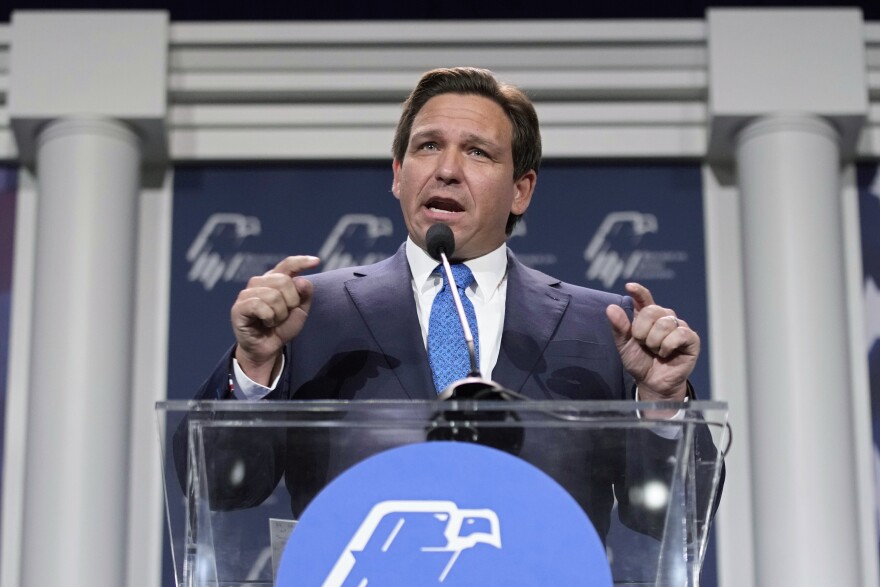Florida Gov. Ron DeSantis vetoed a controversial bill late Friday restricting kids under the age of 16 from accessing social media. It comes the same week the U.S. Supreme Court heard a challenge to existing laws in Florida and Texas that blocked social media companies from limiting adult speech on their platforms.
Both moves are part of growing frustration with social media companies to regulate themselves properly.
“You have the United States government in there supporting the big tech companies, fighting against Florida," state Attorney General Ashley Moody said Monday following oral arguments in one of the cases before the U.S. Supreme Court.
Alleged Online Censorship?
The Supreme Court heard a complaint against Florida and Texas that stems from a 2021 law that restricts companies like Facebook and Instagram from having the power to pick which user content they promote.
DeSantis said that year he believed politicians were being “shadow banned” and “censored” for simply expressing their political views. He also stated it was part of a "political agenda" to keep Democrats in office.
“We are protecting Floridians' ability to speak and express their opinions," said DeSantis. "This will lead to more speech, not less speech.”
Florida has carried its feud with social media companies into this year
Instead of the attention being on political freedom, it’s now geared towards protecting the mental health of children. The proposal, HB 1, effectively bans minors under 16 from social media platforms and it’s spearheaded by Florida House Speaker Paul Renner.
“We need to take a close look at the consequences of social media," said Renner. "As well as the far too easy access for young kids and I mean like six years old, to access hardcore pornography. The rules for adults are for adults, but for kids, that’s not appropriate.”

Renner’s attempts haven’t exactly gone smoothly. Opponents, most prominently Gov. DeSantis, have fretted about the lack of parental input in the bill. The measure didn't give parents a say in whether their children could use the platforms.
“As much as I think it’s harmful to have people on these social media platforms for five or six hours a day, a parent can supervise a kid to use it more sparingly,” the governor explained.
I have vetoed HB 1 because the Legislature is about to produce a different, superior bill.
— Ron DeSantis (@GovRonDeSantis) March 1, 2024
Protecting children from harms associated with social media is important, as is supporting parents’ rights and maintaining the ability of adults to engage in anonymous speech.
I…
How far can governments go in regulating private social media companies?
DeSantis has vetoed HB 1 and now lawmakers are trying to rework it but even as they do a big issue hangs over both the U.S. Supreme Court and the State of Florida—is it possible to regulate social media companies which are effectively, private entities?
Supreme Court Justice Sonia Sotomayor thinks Florida is pushing its limits.
“At what point does a law become so generalized?" Sotomayor asked Florida Solicitor General Henry Whitaker during Monday's argument. "The law is broad and unspecific, you bare the burden of coming in and telling us exactly what the sweep is."








